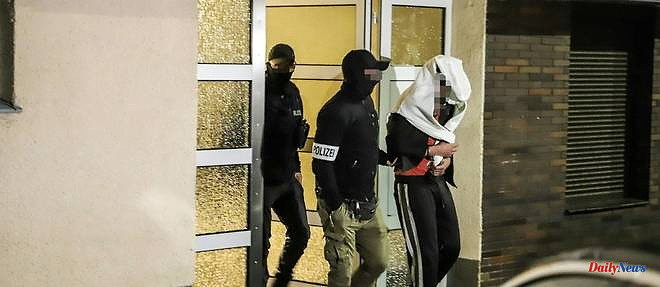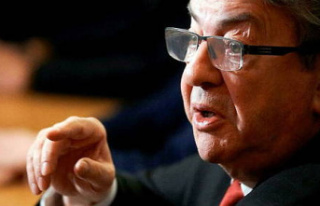A large-scale police operation carried out simultaneously in several European countries targeted the Calabrian mafia, the powerful 'Ndrangheta preeminent in drug trafficking, on Wednesday, resulting in 132 arrests.
It is "the hardest blow inflicted to date on the Italian criminal organization", underlined Europol, the agency of the European Union for police cooperation.
The countries concerned by this operation, baptized Eureka, are in Europe Italy, Germany, France, Spain, Portugal, Slovenia, Romania and Belgium, and in Latin America Brazil and Panama. specified Europol, which coordinated the various police forces involved during this punch operation which gave rise to 150 searches.
"The arrests of members of the 'Ndrangheta carried out in Italy and abroad (...) represent another important result in the fight against criminal organizations", welcomed the Italian Minister of the Interior Matteo Piantedosi.
The 'Ndrangheta dominates the cocaine market on the Old Continent, where it is also implicated in cases of money laundering, corruption and violence.
The investigation also confirmed significant flows of drugs between South America and Europe, managed in particular by the clan of San Luca in Calabria, the tip of the Italian Boot.
The families at the head of this criminal network have also been involved for decades in violence to compete for this lucrative market, which culminated in the massacre of Duisburg in Germany in 2007.
Two Italians were arrested in France and 70,000 euros as well as computer equipment were seized from them, a dozen people were arrested in Belgium, about twenty in Germany, and a hundred others in the peninsula for mafia association, trafficking in drugs, arms trafficking, tax evasion and money laundering.
According to the Italian public prosecutor's office, companies and real estate have also been seized for an amount of 25 million euros.
As part of these investigations, the Italian part of which began in June 2019, the Italian and Belgian authorities were able to attribute to the 'Ndrangetha the import and trafficking of more than six tonnes of cocaine over the period from October 2019 to January 2022.
South American cocaine passed through the ports of Colon (Panama), Gioia Tauro (Calabria) and Antwerp (Belgium) but also other ports in Germany, Spain and the Netherlands (Rotterdam), thanks to agreements entered into by the 'Ndrangheta with the Colombian criminal organization Clan del Golfo and another ethnic Albanian criminal group operating in Ecuador and Europe.
Investigators also uncovered a proposal to supply a Brazilian paramilitary organization, Primeiro Comando da Capital (PCC), with a container full of weapons of war through Pakistani criminals in exchange for shipping huge quantities of drugs at the port of Gioia Tauro.
The money from this traffic has been reinvested, among other things, in the real estate sector, hotels, restaurants and supermarkets, notably in Germany, Belgium, Italy, Portugal, Brazil, Uruguay and Argentina.
More than 2,700 police officers were mobilized on the ground for this crackdown launched Wednesday at dawn, including 1,400 for Italy alone.
In Germany, a hundred searches were carried out. German Interior Minister Nancy Faeser said it was a "sensitive blow" to the 'Ndrangheta, considered Italy's richest and most powerful mafia with ramifications in around 40 country, far ahead of the Neapolitan (Camorra) and Sicilian (Cosa Nostra) mafias.
In August 2007, a bloody episode brought to light the establishment of the 'Ndrangheta in Germany: the bodies of six Italians, aged between 16 and 39 and members of one of the two San Luca clans, were discovered riddled with bullets in two vehicles in front of the Italian restaurant "Da Bruno" in Duisburg (west).
This massacre was, according to investigators, a vendetta after the assassination in late 2006 of Maria Strangio, wife of Giovanni Nirta, leader of the rival clan.
smk-mad-idea-ar/glr/fjb
05/03/2023 20:33:41 - Rome (AFP) - © 2023 AFP












